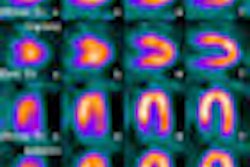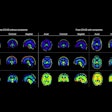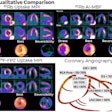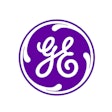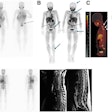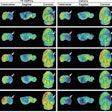Dear Molecular Imaging Insider,
A new study from the Duke Clinical Research Institute and the University of Alabama has concluded that myocardial perfusion imaging (MPI) is a significant predictor of sudden cardiac death.
In a retrospective study of 6,383 patients, researchers also found that gated SPECT imaging may represent a more effective means of risk stratification than solitary left ventricular ejection fraction determination. More details on the study, which was published online September 17 in Circulation, can be found by clicking here.
Also in this edition of the Molecular Imaging Insider are two reports from the recently concluded annual meeting of the American Society of Nuclear Cardiology (ASNC).
Doctors from Emory University, the Mayo Clinic, and Rambam University collaborated on a multicenter study on an ultrafast cardiac (UFC) camera that acquired images in substantially less time than standard gamma cameras and with reduced radiation exposure. In a comparison of image quality, the UFC camera also was on a par with, and in some cases better than, a standard dedicated dual-detector camera used for point of comparison.
ASNC also provided the setting for research from Washington University in St. Louis that found that under the right conditions, FDG-PET/CT may become a very useful tool in detecting and evaluating coronary plaque. The proof-of-concept study offered preliminary but promising results in its comparison of FDG-PET/CT with angiography and intravascular ultrasound.
The case for expanded reimbursement of FDG-PET is now stronger, thanks to the latest results from the Australian PET Data Collection Project. Dr. Andrew M. Scott, director of the Centre for PET at Austin Hospital in Melbourne, provides details in this report on how PET can change the management of more than half of colorectal cancer patients.
The study, which appears in the current issue of the Journal of Nuclear Medicine, could provide ammunition for U.S. PET supporters as they lobby Medicare to cover more oncological indications.
In other news, there are signs that the ongoing shortage of technetium-99m in Europe may be going on longer than expected, after researchers in charge of a reactor in the Netherlands said the facility may be closed a month longer than originally forecast. Get the rest of the story by clicking here.
Speaking of oncology, this week AuntMinnie.com is in Boston for the annual meeting of the American Society for Therapeutic Radiology and Oncology (ASTRO). Be sure to visit the Molecular Imaging Digital Community daily for news updates and details on the latest research in the days to come.






